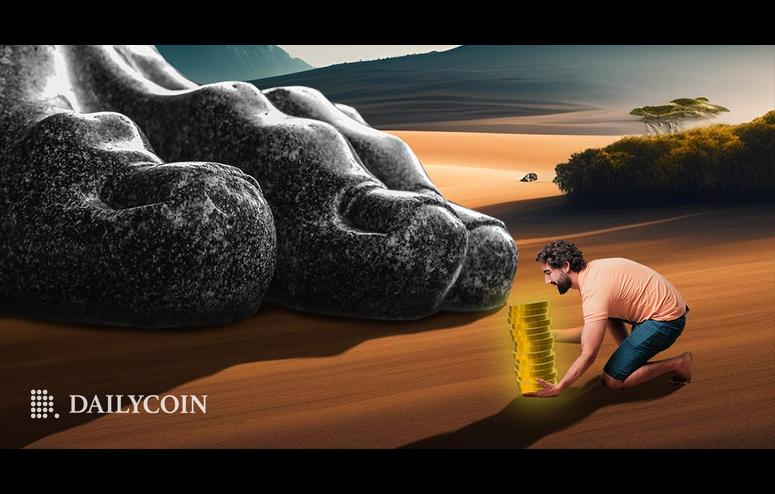Why Sending 'Free' Coins to Vitalik Buterin May Soon Be Illegal
TL;DR Vitalik Buterin, the Ethereum founder, receives many worthless tokens as airdrops. He recently sold $700,000 worth of some of these tokens. The SEC recently cracked down on crypto exchanges and could potentially do the same for airdrops if they are found to benefit the issuer. Token spam can be a nuisance but is also a potential security risk.

ETH founder Vitalik Buterin receives s***coins daily. Few are worth anything.
Projects send out free tokens for marketing purposes or to raise their profile.
Unwanted airdrops may violate securities regulations if they benefit the distributor.
Crypto users have to deal with an incessant amount of spam. As a major name in the industry, Ethereum co-founder Vitalik Buterin receives numerous unsolicited token drops daily. Few are worth anything.
On Monday, Buterin decided to get rid of some of his unwanted tokens. According to data from Etherscan, he sold nearly $700,000 worth of SHIK, CULT, and MOPS tokens.
Projects like Shikoku Inu (SHIK), which gifted Vitalik 50% of the token supply, send unsolicited tokens for several reasons. For one, it helps with marketing. Airdroping to famous people helps raise the profile of a token. Crypto projects that don’t have a lot going for them can claim association with a big name in the industry.
This strategy is not without its risks. SHIK token dropped 86% after Vitalik dumped all his holdings. However, that risk doesn’t deter most s***coin projects from sending worthless tokens.
On Tuesday, Buterin’s wallet received 500,000,000 “Vitalik Jeeterin,” 4,200,000,000,000 “Jeetalik Buter Inu,” and 99,000,000,000,000 “Vitalik Dont Sell” tokens. According to Etherscan, these tokens are worth exactly $0.
Will the SEC Crack Down on Airdrops?
What could potentially deter s***coin airdrops in the future is tougher securities regulation. The US Securities and Exchange Commission (SEC) is going after securities offering in crypto. Airdrops are not safe from the SEC crackdown.
Although technically free, an airdrop could still violate securities regulations, according to Nirav Gala, CFA at Vivriti Asset Management.
“As has been held in the case of SEC v. Sierra Brokerage Servs., Inc, as long as the issuer receives some real benefit by disposing of securities, it is considered a sale of securities,” Gala
said.
A “real benefit” could be anything from marketing and promotion, getting referrals, increasing traffic to their website, and so on. With a definition so broad, any form of an airdrop could fit the SEC’s definition.
“The bottom line is,” Gala said,” no matter how you structure an airdrop, it will always result in a direct or indirect benefit for the issuer, and thus would be considered a sale of securities by the SEC,” Gala concluded.
It is unclear how the SEC will enforce a ban on airdrops. In the meantime, crypto users can simply hide unwanted tokens in their wallet interfaces.
On the Flipside
Buterin still holds 10,000,000,420 CULT tokens, worth $89,000, according to his wallet data. It’s unclear why the Ethereum founder held on to that amount other than to reference the “420” meme.
The SEC has been cracking down on segments of the crypto industry ever since the FTX crash.
Why You Should Care
Token spam is mostly a nuisance but can also be a serious problem. Scammers will sometimes use spam tokens to steal a person’s wallet information. It’s always best not to interact with these tokens.
Read more about Vitalik’s views on crypto:
Ethereum Founder Vitalik Buterin Bashes Governance Token Speculation, Calls it “Pathological”
Read more about the SEC crackdown on exchanges:
Binance Leaks Spell Trouble with SEC, ‘Nuclear Fallout’
